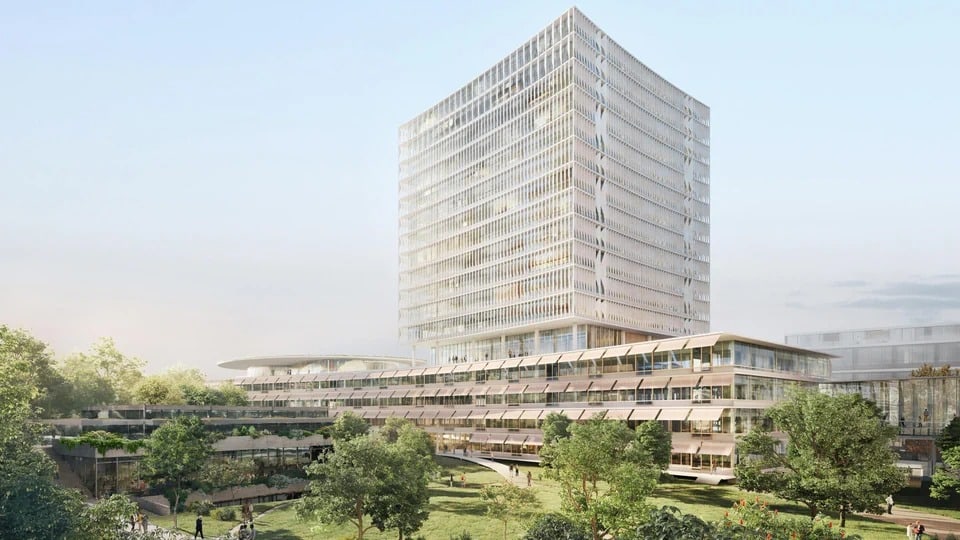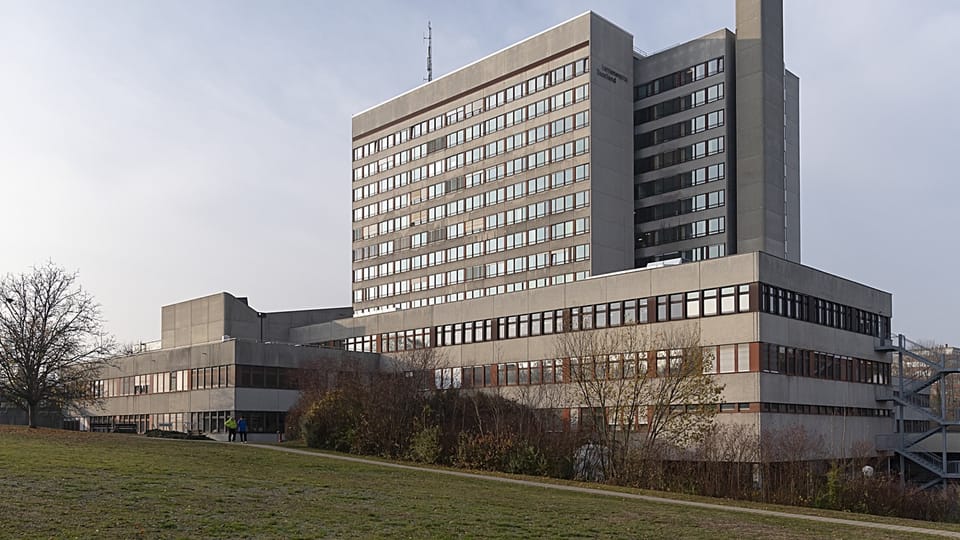Contents
Despite discussions about excess capacity, hospital mergers rarely occur. This was rejected in Basel-Stadt and Baselland in 2019, but now voices are being heard for a new attempt.
On average, health insurance premiums will be eight percent more expensive by 2024. This gloomy prospect increases the pressure to save on everyone involved. One approach would be to reduce hospital beds or to merge or close hospitals.
Four years ago, Basel-Stadt and Basel-Landschaft wanted to merge their cantonal hospitals for the first time – and ventured into the hospital merger minefield. Both are sponsors of the University of Basel, and the Basel University Hospital (USB) would have been merged with them. “Would be”, because the merger failed in the city canton in 2019; the rural canton said yes.
Just four years later, the Basel hospital merger is now back on the political table: A hospital merger could strengthen basic care and reduce costs, says Basel SP National Councilor Sarah Wyss. It would therefore be “an important sign that this hospital merger is being tackled again”.
The former National Councilor of the SP Susanne Leutenegger-Oberholzer from Basel is also hoping for a new attempt at the hospital merger, as she recently said in a TeleBasel panel discussion. Sitting next to her was Basel FDP Grand Councilor Luca Urgese, who agreed: “It’s certainly something you have to look at.”
The Basel FDP district administrator Sven Inäbnit does not rule out a new attempt at a hospital merger between the two Basels per se. But in view of the financial challenges and the trend of “outpatient over inpatient” he primarily insists on a broader discussion, also with a view to the neighboring cantons of Solothurn and Aargau.
However, the Basel city health director Lukas Engelberger gives little chance to a new hospital merger attempt. The best solution for this was on the table in 2019.
Basel is oversupplied.
For health economist Heinz Locher, there is a need for action in both Basels: “Basel is oversupplied.” However, a hospital merger is not the best approach – there is a risk of emotions and arguments.
Instead, Locher suggests discussing facts openly: how many hospitals the Basel region really needs. This is also an emotional discussion, as he admits: In St. Gallen and Vaud, health directors were voted out because they wanted to close hospitals.
Symbolism and competition
A bone of contention is the Bruderholzspital, the second large location of the Baselland Cantonal Hospital. The building, inaugurated in 1973, was built in a clearly visible location on the city limits as a signal of the rural canton’s autonomy. Baselland is planning a new building that is expected to cost three-digit millions.
Legend:
Bruderholz Hospital
Keystone / Georgios Kefalas
And the University Hospital of Basel not only wants to replace one of its two wings, but also wants to build an additional one. The bottom line is that the university hospital is planning new buildings for around 1.7 billion francs.
Doubts about expansion course
Since saying no to the merger in 2019, the cantonal hospitals in both Basels have been pushing for expansion instead of dismantling. However, repeated debates about exploding health care costs are now eroding support for this expensive expansion course in parliament.

Legend:
The new Clinic 3 is intended, among other things, to help maintain hospital operations during the replacement construction of Clinic 2.
Herzog & de Meuron
In mid-October, the Basel Grand Council put the USB development plan on hold until financing was clarified. This after the USB applied for a loan of 300 million for this. Only recently, the city canton had to pay a good 90 million in depreciation on its old people’s hospital because of its new building.
Echo of Time, Saturday November 4th, 2023, 6:00 p.m.; lanr; stat
